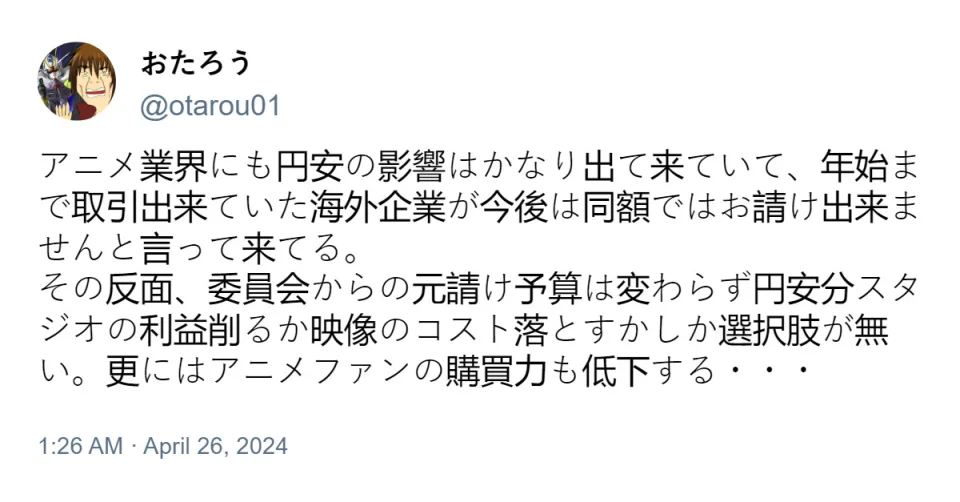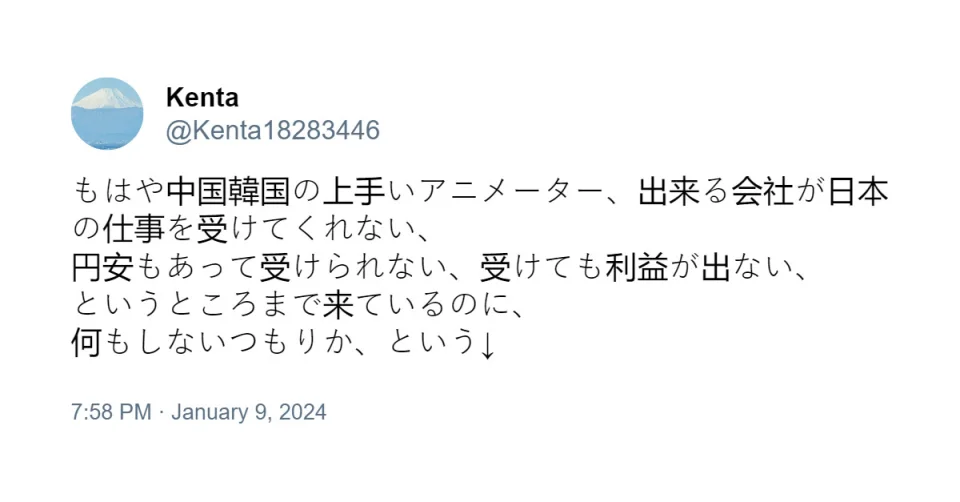Yen Fall Is Affecting Anime

Anime production staff and other professionals have recently expressed concerns about the sustainability of the sector in the face of the depreciation of the Japanese yen against essential currencies such as the Korean won and the Chinese yuan.
Recent reports from Nikkei Asia and Japan Times reveal that the yen is at its lowest level in 16 years against the won and its lowest level against the yuan since 1993. Animator Otarou explained in April why this was significant in a recent Twitter post:
- "The weakness of the yen is also having a significant impact on the anime industry, as foreign companies that were able to do business with us until the beginning of the year now say they can no longer accept orders at the same prices."
Most anime studios act as contractors for production committees, trusting them with budgets for their services, which they use to outsource studios. Animator Otarou continues:
- "On the other hand, the committee's budget does not change, and the studio has no choice but to cut its profits to compensate for the weakness of the yen or reduce the cost of production. In addition, the purchasing power of anime fans is also decreasing."

This last comment comes from the episode director of the "Mysterious Disappearances" and "Bartender: Glass of God" anime, Kentaro Mizuno. Mizuno has highlighted this issue in several posts this year:
- "It's gotten to a point where good cheerleaders and capable companies from China and Korea will no longer take Japanese jobs, and even if they do, they can't make a profit because the yen is worth less and less. Even if it has come to this point, do you [the government] think you will do nothing? If things continue like this, sooner or later, Japan will sink. Animators and talented companies from Japan will be absorbed by foreign companies. They will be dominated... Exploited. That would be the case."

Japan's reliance on outsourcing is due to cheaper labor, especially in Korea and China. If this can't be sustained, it would probably force a reduction in the number of productions, or the anime's staff, already overworked and underpaid, having to work harder to compensate.
A 2021 statistic from the Animator Dormitory Project claimed that 90% of animators quit their job within three years, so the increased loads could be disastrous. Naturally, this also has real effects on viewers, such as production problems and cancellations, and the entrenchment of the duopoly of cliché-filled anime and those that repeat the same formula of previous hits.
Source: Nikkei Asia

